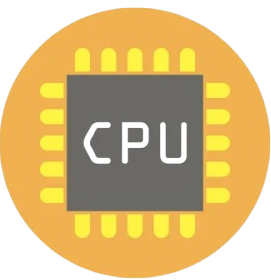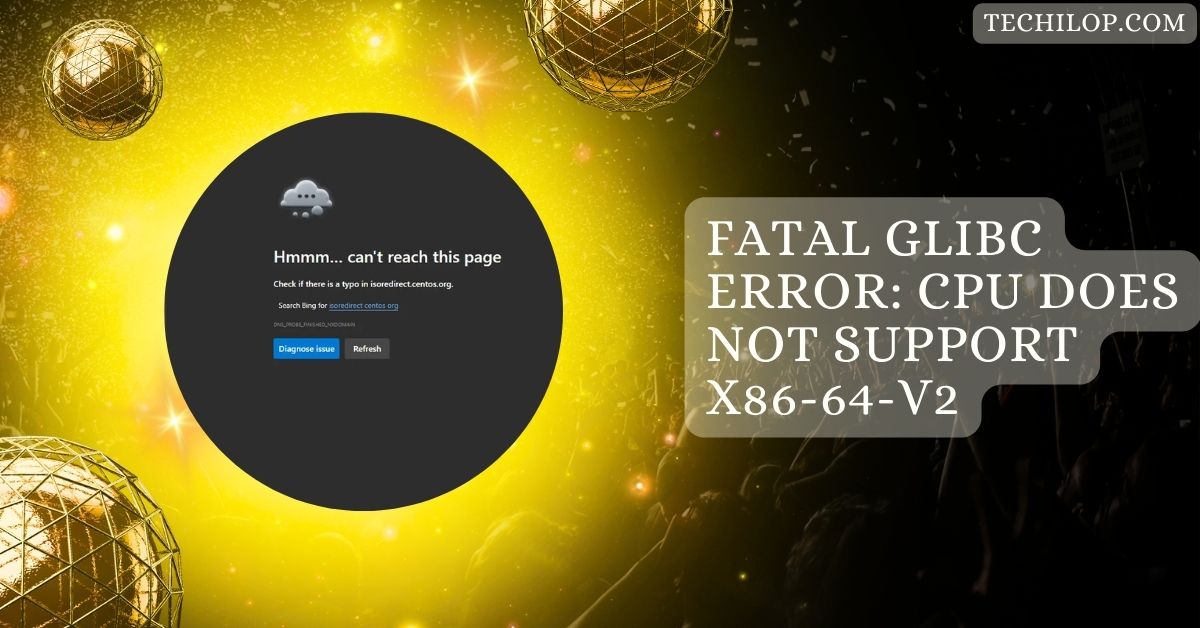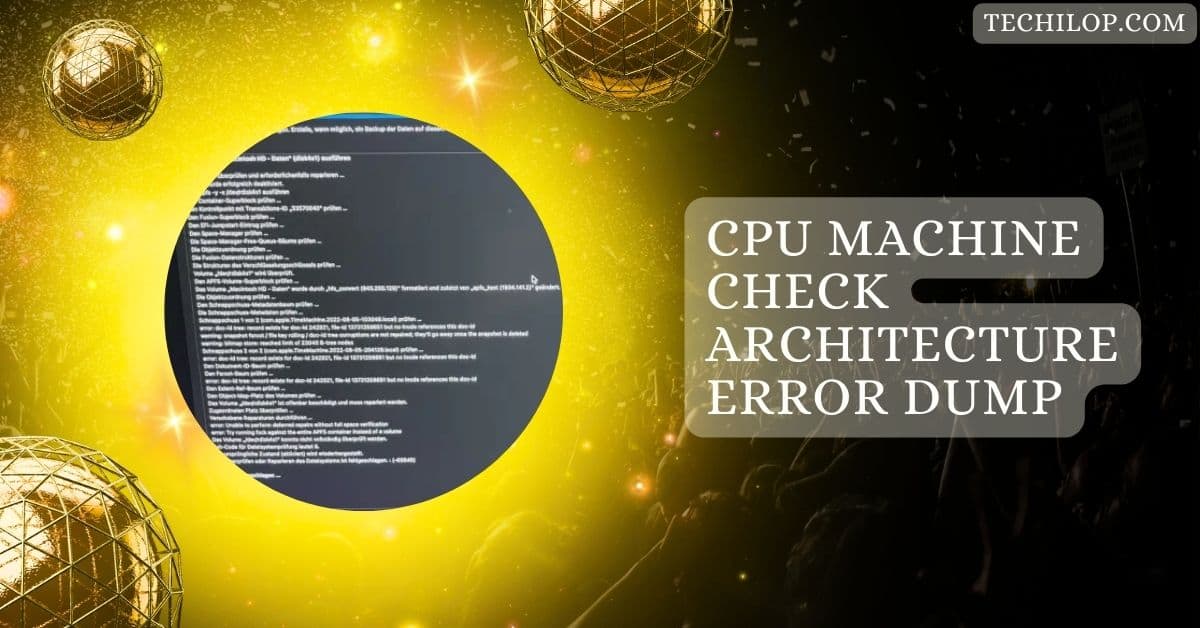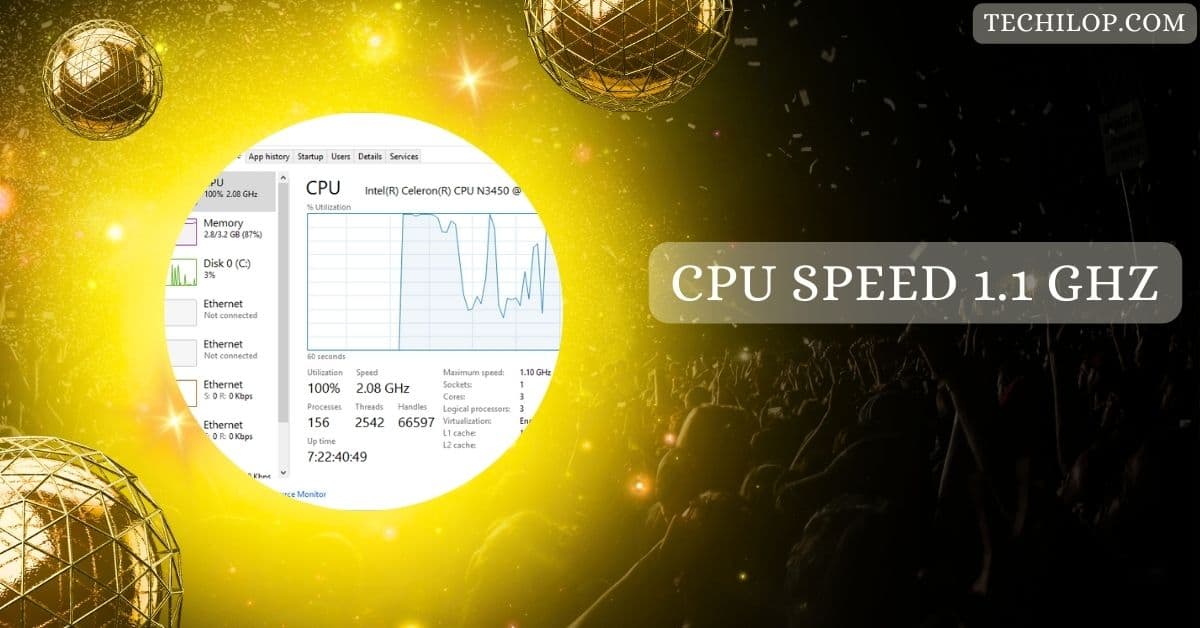The “Fatal Glibc Error: CPU Does Not Support X86-64-V2” is a frustrating issue many users encounter while trying to run software on their computers.
The “Fatal Glibc Error: CPU Does Not Support X86-64-V2″ occurs when your CPU is not compatible with newer software features. This error can hinder application performance and system stability. To resolve it, consider upgrading your hardware or software.
In this article, we’ll explore the reasons behind this error, its impact on your system, and practical solutions to help you resolve it.
Understanding the Fatal Glibc Error: CPU Does Not Support X86-64-V2
The Fatal Glibc Error happens when your computer’s CPU can’t run newer software made for the x86-64-v2 architecture. This can cause programs to crash or not work, leading to frustration for users.
1. Reasons for the Error
- Old Processor: Your CPU might need to be updated for new software.
- Outdated Software: Using old programs that don’t match new requirements can cause this error.
- Incompatible Programs: Trying to run software made for newer systems on older CPUs leads to problems.
- System Updates: Upgrading system files without checking CPU compatibility can create this error.
A. Incompatible Processor
An incompatible processor means your CPU is too old or needs more features for newer software. When software requires certain capabilities that your CPU doesn’t have, it leads to the Fatal Glibc Error and application failures.
B. Outdated Software
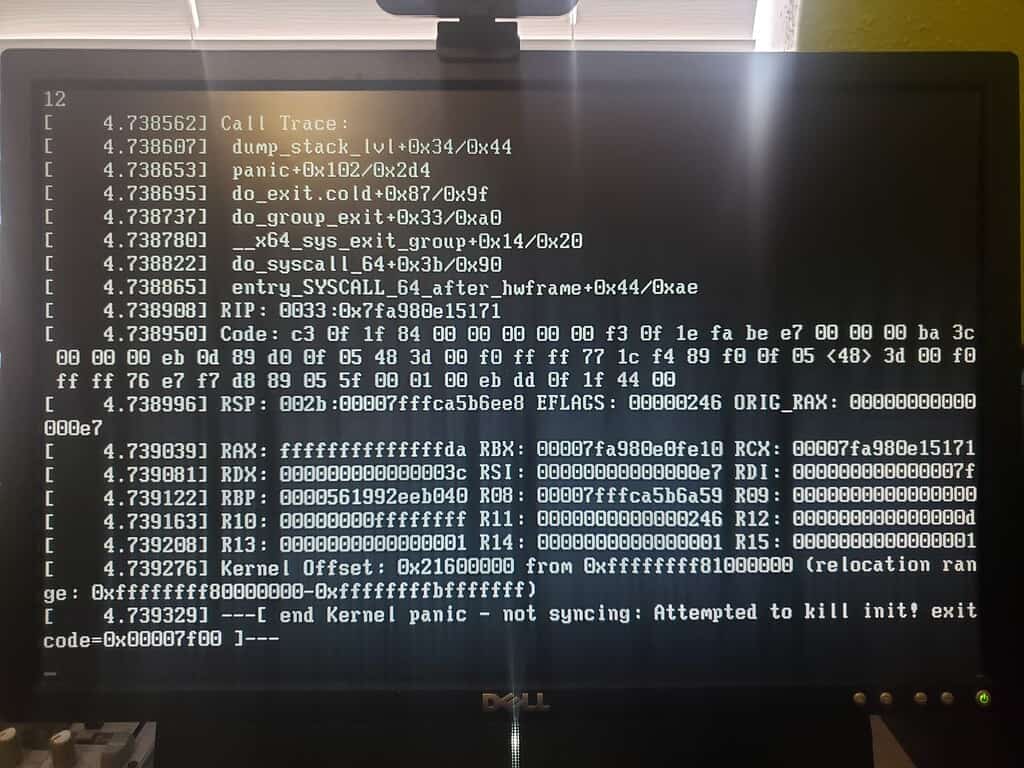
Running outdated software can cause compatibility issues. Older versions of applications might not work well with new libraries or system updates, leading to errors like the Fatal Glibc Error. Always keep your software updated for better performance.
C. Binary Incompatibility
Binary incompatibility happens when software compiled for a newer architecture tries to run on older hardware. This mismatch can cause the Fatal Glibc Error, preventing the application from launching or functioning properly on your system.
Also Read: What Is Vddcr CPU Voltage – Top Tips For Safe Adjustments!
2. Impact of the Error
- Software Crashes: Programs may stop working suddenly, causing frustration.
- Poor Performance: Your computer might run slower or freeze often.
- Loss of Access: Important tools and applications may become unusable.
- Increased Security Risks: Old systems are more vulnerable to attacks if not updated.
A. Application Failure
Application failure means that programs you want to use suddenly stop working. When you encounter the Fatal Glibc Error, it can prevent you from accessing important tools, hindering your productivity and causing frustration.
B. System Instability
System instability refers to your computer behaving erratically, crashing, or freezing due to unresolved errors. The Fatal Glibc Error can contribute to this instability, making your device unreliable and affecting your overall experience.
C. Security Risks
The Fatal Glibc Error can lead to security risks. Using outdated software or unsupported hardware may expose your system to vulnerabilities. Addressing this error is crucial to protecting your personal information and maintaining system security.
Understanding the Error
The Fatal Glibc Error means your computer’s CPU can’t run certain programs because it doesn’t support the newer x86-64-v2 architecture. This can stop applications from working, causing issues for users trying to install or run software.
1. Common scenarios leading to this error
- Using Old Hardware: Running new programs on a computer with an outdated CPU can cause this error.
- Upgrading Software: Installing a newer software version without checking CPU compatibility may lead to issues.
- Incompatible Applications: Some applications are built for newer CPU types, which older CPUs cannot support.
- Docker Issues: Running Docker containers on unsupported CPUs can trigger the error.
- Virtual Machines: Using virtual machines with settings that require x86-64-v2 on an incompatible host can cause problems.
- Library Updates: Updating system libraries without ensuring your CPU can handle the new requirements may result in errors.
The x86-64 Architecture
1. History and evolution
AMD developed the x86-64 architecture in the early 2000s, expanding the x86 instruction set to 64 bits. Intel later adopted this design, leading to widespread use in computers and servers.
2. x86-64-v1 vs. x86-64-v2
x86-64-v1 and x86-64-v2 are different versions of the x86-64 architecture. x86-64-v2 adds more instructions and features, improving performance and capabilities. Programs built for v2 may not run on v1 due to this difference.
Also Read: Print Filter Pipeline Host High CPU – Quick Guide In 2024!
3. CPU instruction sets and compatibility
CPU instruction sets are groups of commands that processors understand. Compatibility means that software can run on a specific CPU type. If a program uses instructions not supported by the CPU, it will fail to run.
Glibc and CPU Compatibility
1. Role of glibc in system operations
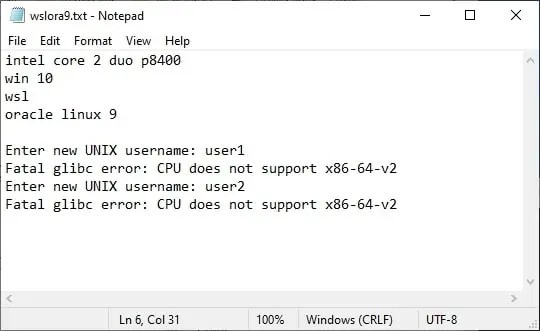
Glibc is essential for many system operations. It handles tasks like memory management and input/output. Without glibc, programs cannot function correctly, leading to errors and crashes in the operating system and applications.
2. Compatibility requirements for different glibc versions
Each version of glibc has specific CPU requirements. Newer versions may need advanced CPU features. If a computer’s CPU doesn’t meet these needs, it may show errors or not run newer software properly.
Common Causes of the Error
1. Installing incompatible software
Installing software that requires newer CPU features can cause errors. If the software expects a specific instruction set and your CPU doesn’t support it, the program will not run and will show compatibility issues.
2. Upgrading glibc without checking CPU support
Upgrading Glibc without checking if your CPU supports it can lead to problems. Newer Glibc versions may need advanced CPU features, which can cause applications to fail or crash.
3. Using outdated hardware
Using old hardware can lead to the Fatal Glibc error. Older CPUs may not support the latest features needed by new software. Upgrading hardware is essential to ensure compatibility and avoid performance issues.
How To Resolve Fatal glibc error: CPU does not support x86-64-v2
To fix this error:
- Check your CPU’s compatibility.
- If needed, upgrade your hardware, install compatible software, or downgrade glibc to a version that works with your CPU’s features.
- Always verify before making changes.
Docker image no longer works on older CPU (CPU does not support x86-64-v2)
If your Docker image stops working, it may require newer CPU features. To fix it, try using a lighter image that supports older CPUs or upgrade your hardware to meet the image’s requirements.
Can Not Update 19.5 -> 20.0 Fatal Glibc Error: CPU Does Not Support X86-64-V2
If you can’t update from version 19.5 to 20.0, your CPU may not support the new features. Check compatibility, or consider upgrading your CPU or using an older software version that works.
Keycloak docker error CPU does not support x86-64-v2
This error in Keycloak happens when the CPU lacks needed features. Check your CPU specs and consider updating your hardware or using an older Keycloak version compatible with your current setup.
Must Read: Can I Use 70 Alcohol To Clean CPU – Tips And Tricks In 2024!
How do I check if my CPU supports x86-64-v2 and higher?
To check CPU support for x86-64-v2, you can use terminal commands or system information tools. Look for the CPU model and its instruction set to see if it meets the required specifications.
Docker for macOS
Docker on macOS may encounter compatibility issues if the underlying hardware doesn’t support x86-64-v2. Ensure your Mac is up to date, or consider alternative setups to improve compatibility with Docker images.
x86-64-v2-AES vs host
The x86-64-v2-AES feature offers improved encryption support compared to older versions. Ensure your CPU supports this feature for better performance and security. Check the specifications to see how it compares to your host.
CPU does not support x86-64-v2
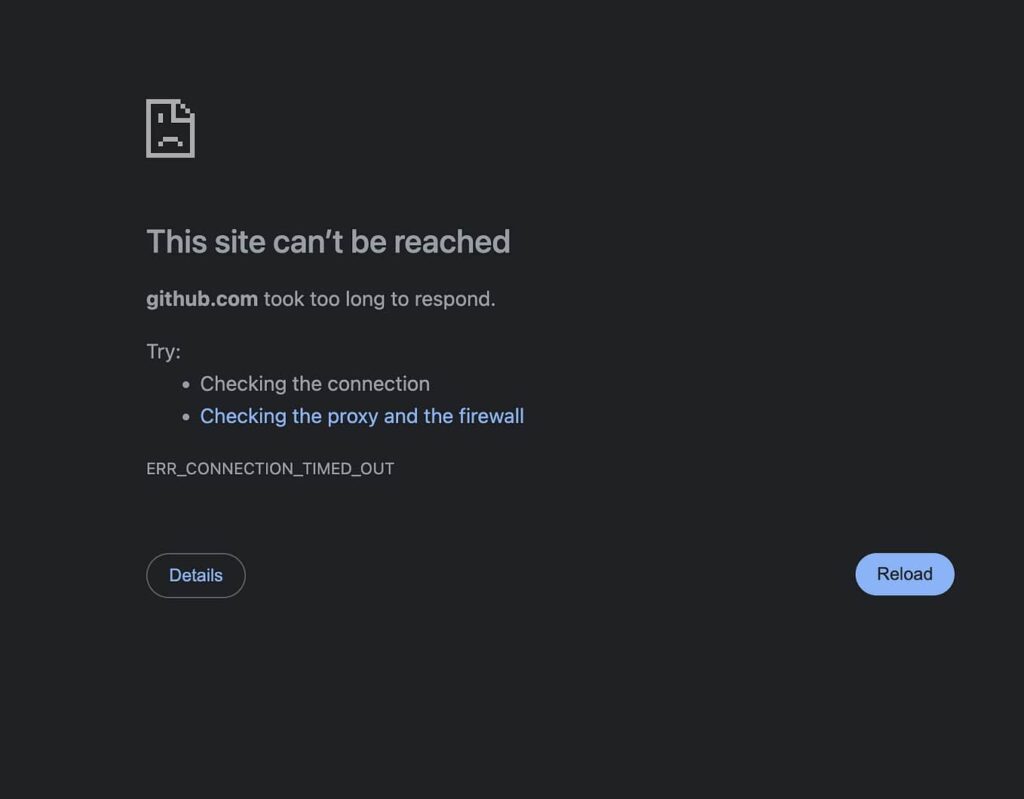
Many modern applications will fail to run when your CPU doesn’t support x86-64-v2. Consider upgrading your hardware to meet the latest software requirements or use older versions that match your CPU’s capabilities.
After upgrade, PMM2 container fails to start with “Fatal glibc error: CPU does not support x86-64-v2”
If the PMM2 container fails to start after an upgrade, it’s likely due to CPU compatibility issues. Check if your CPU meets the required specifications or revert to an older PMM2 version.
Proxmox Fatal Glibc Error: Cpu Does Not Support X86-64-V2
This error in Proxmox indicates that your CPU lacks the necessary support for the installed version. To resolve it, check your CPU’s specifications or consider upgrading your hardware for better compatibility with Proxmox features.
Fatal Glibc Error: Cpu Does Not Support X86-64-V2 Docker
This error shows that your CPU can’t run certain images when using Docker. To avoid this problem in the future, check your CPU’s features, update your hardware, or use compatible images designed for older CPUs.
Fatal Glibc Error Cpu Does Not Support X86-64-V2 Kubernetes
This Kubernetes error occurs when your CPU lacks support for newer features. To fix it, review your CPU’s capabilities and upgrade if necessary. Alternatively, use a Kubernetes version that works with your current hardware.
CPU Does Not Support X86-64-V2 Virtualbox
This error means your CPU lacks support for x86-64-v2 features when using VirtualBox. Upgrade your CPU or choose a lighter virtualization setup to run your machines without issues.
Qemu CPU Does Not Support X86-64-V2
This error in QEMU indicates that your CPU cannot handle newer features. To fix it, check your CPU specs and consider upgrading your hardware or using an older QEMU version that is compatible with your setup.
CPU Does Not Support X86-64-V2 Minio
If you see this error in Minio, your CPU doesn’t support needed features. You can upgrade your hardware or use an earlier version of Minio that works with your current CPU.
X86-64-V2 CPU List
The x86-64-v2 CPU list includes modern processors that support advanced features. Check this list to see if your CPU is included. If not, consider upgrading to a compatible model for better performance.
Proxmox x86-64-v2
For optimal performance, Proxmox requires CPUs with x86-64-v2 support. If your CPU doesn’t support this, consider upgrading your hardware or using an older Proxmox version that works with your existing CPU features.
CPU does not support x86 64 v2 AWX
This error in AWX shows your CPU can’t run the software due to missing features. Check your CPU specifications and upgrade your hardware, or use an earlier AWX version compatible with your CPU.
CPU does not support x86-64-v2 in the latest 8.4.0
If you encounter this error in version 8.4.0, your CPU might not support the necessary features. Review your CPU’s capabilities and consider upgrading or using an older version that works with your setup.
Fatal error with MySQL on secondary server
This fatal error with MySQL indicates your secondary server’s CPU lacks support for x86-64-v2 features. Upgrade the CPU or reconfigure MySQL to use an older version compatible with your server’s hardware.
NS8 on Rocky on VirtualBox virtualization error
If you see this error while using NS8 on Rocky Linux in VirtualBox, your CPU does not support the required features. Check your CPU specifications or upgrade your hardware to resolve the issue.
4.13.0: ovnkube-master: Fatal glibc error: CPU does not support x86-64-v2
This error in Ovnkube-master means your CPU can’t handle the new features. Check your CPU’s compatibility and consider upgrading your hardware or reverting to a version that works with your existing CPU.
[leapp] IPU 8>9: Fatal glibc error: CPU does not support x86-64-v2
![[leapp] IPU 89 Fatal glibc error CPU does not support x86-64-v2](https://techilop.com/wp-content/uploads/2024/10/leapp-IPU-89-Fatal-glibc-error-CPU-does-not-support-x86-64-v2-1024x366.jpg)
This error in Leapp indicates your CPU lacks support for required features. To resolve it, verify your CPU specifications and consider upgrading to meet the software’s compatibility requirements.
[ArcSight Platform] Fatal glibc error: CPU does not support x86-64-v2
When you see this error in ArcSight, it means your CPU doesn’t support x86-64-v2 features. To fix it, check if your CPU meets the requirements and upgrade your hardware if necessary.
Fatal glibc error: CPU does not support x86-64-v2 when installing Rocky Linux 9 on pve7
This error means your CPU can’t support the required features for installing Rocky Linux 9. Check your CPU specifications, upgrade if needed, or use an earlier version of Rocky Linux that is compatible with your hardware.
FAQs
1. What does the “Fatal Glibc Error: CPU Does Not Support X86-64-V2” error mean?
This error means your CPU lacks support for needed features. It stops some software from running correctly on your system.
2. How can I determine if my CPU supports X86-64-V2?
You can check your CPU specifications online or use a system info tool to determine whether it supports x86-64-v2.
3. Can I still use my computer if I encounter this error?
Yes, you can still use your computer, but some programs may not work. Fixing the error improves overall performance.
4. Can I upgrade my CPU to support X86-64-V2?
Yes, upgrading your CPU is a good option. Make sure to choose a compatible model that supports x86-64-v2 features.
5. Are there any alternative solutions for this error?
You can try using older software versions or lighter alternatives. These options might work better with your current CPU.
6. What are the risks of downgrading glibc?
Downgrading Glibc can cause compatibility issues with other software and introduce security risks, so proceed with caution.
7. How do I prevent this error in the future?
Keep your software updated and check CPU compatibility before upgrades. Regular maintenance helps avoid future issues with errors.
8. How to enable x86 64 v2?
You cannot enable x86-64-v2 if your CPU doesn’t support it. Consider upgrading your hardware to access these features.
9. Does not support x86 64 v2?
If you encounter this message, your CPU can’t handle the required features. Upgrade your hardware for better performance.
10. What is x86 64 v2?
X86-64-v2 is an advanced CPU architecture that supports new features for improved performance. It allows the software to run efficiently.
Conclusion
In conclusion, the “Fatal Glibc Error: CPU Does Not Support X86-64-V2” can disrupt your computing experience. Understanding its causes and impacts is essential. Upgrading hardware or software can resolve this issue, ensuring better performance and system stability.
